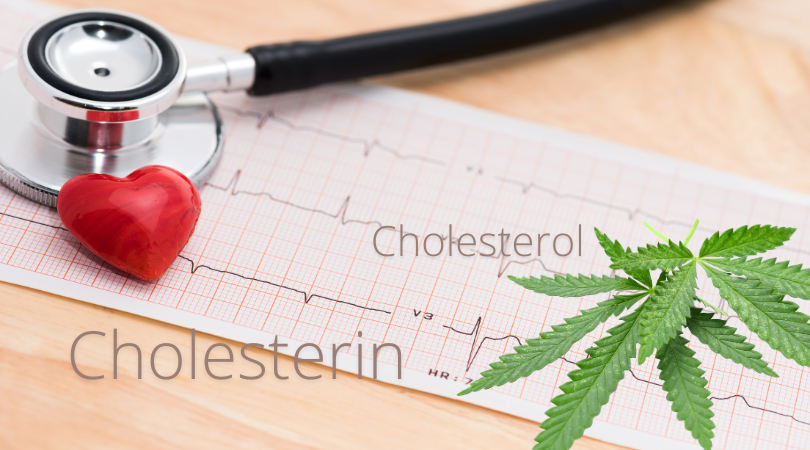CBD and cholesterol: What does research say?
- UNSER KRAUT Media

- Jun 30, 2023
- 3 min read

CBD (cannabidiol) is a natural component of the hemp plant that has attracted increasing research interest in recent years – particularly with regard to its potential effects on the cardiovascular system. A frequently asked question is: Can CBD play a supportive role in high cholesterol?
What is cholesterol – and why is it important?
Cholesterol is a fat-like, vital substance found in every human cell. It performs numerous functions in the body:
Main functions of cholesterol:
Component of the cell membrane : Cholesterol ensures stability and flexibility of the cell membranes.
Precursor for hormones : It is necessary for the formation of steroid hormones such as cortisol, testosterone and estrogen.
Precursor of bile acids : Cholesterol is used in the liver to produce bile acids, which are important for fat digestion.
Vitamin D synthesis : It is needed to produce vitamin D when the skin is exposed to sunlight.
A distinction is made between:
LDL cholesterol (low-density lipoprotein) – colloquially known as “bad” cholesterol
HDL cholesterol (high-density lipoprotein) – the "good" cholesterol
A permanently elevated LDL level can lead to hardening of the arteries (arteriosclerosis) and thus increase the risk of heart attack or stroke.
CBD – a brief overview
CBD is non-psychoactive and is valued for its potentially calming, anti-inflammatory, and antioxidant properties. It is extracted from the hemp plant and is found in the form of CBD oil , capsules , teas , or edibles.
Study situation: CBD and cholesterol
Scientific research on CBD and cholesterol is still in its early stages, but initial studies provide interesting clues:
Animal studies with positive approaches
A 2011 study published in Free Radical Biology and Medicine found that CBD can reduce oxidative stress and inhibit inflammatory processes in blood vessels in mice – both risk factors for elevated cholesterol levels.
Source: Rajesh M. et al., 2011 – Cannabidiol attenuates high glucose-induced endothelial cell inflammatory response.
CBD and lipid metabolism
A 2020 study published in the Journal of Dietary Supplements found that CBD may influence lipid and glucose metabolism . The study suggested that CBD could influence fat metabolism in the body via endocannabinoid receptors —a potential target for dyslipidemia (impaired fat metabolism).
Note: These results are from preclinical studies. There are no large-scale human studies yet confirming a clear effect of CBD on cholesterol in humans.
Conclusion: CBD – a promising supplement with research potential
Although there is initial evidence of a connection between CBD and cholesterol, the evidence is not yet sufficient to make definitive statements about its effectiveness. Current studies suggest that CBD may have a supportive effect on inflammation and metabolism —which may also be indirectly relevant for cholesterol problems.
For anyone who wants to take a holistic approach to their cardiovascular health , high-quality CBD oil can be an interesting companion – but only as part of a healthy lifestyle and in consultation with doctors.
Legal notice
CBD products are available in Austria as flavorings, cosmetics, or dietary supplements—but are not approved as medications. Taking CBD does not replace medical treatment for high cholesterol or other conditions.
For legal reasons, we point out that the effects of hemp and cannabinoids (CBD) described here refer exclusively to public scientific reports and expert opinions, publications, and user experiences and should not be understood as instructions for use or promises of healing. This text is in no way a substitute for professional medical advice and should not be used as a basis for self-diagnosis or for initiating, modifying, or discontinuing treatment of illnesses. Always consult your trusted physician if you have any health-related questions or complaints.





Comments